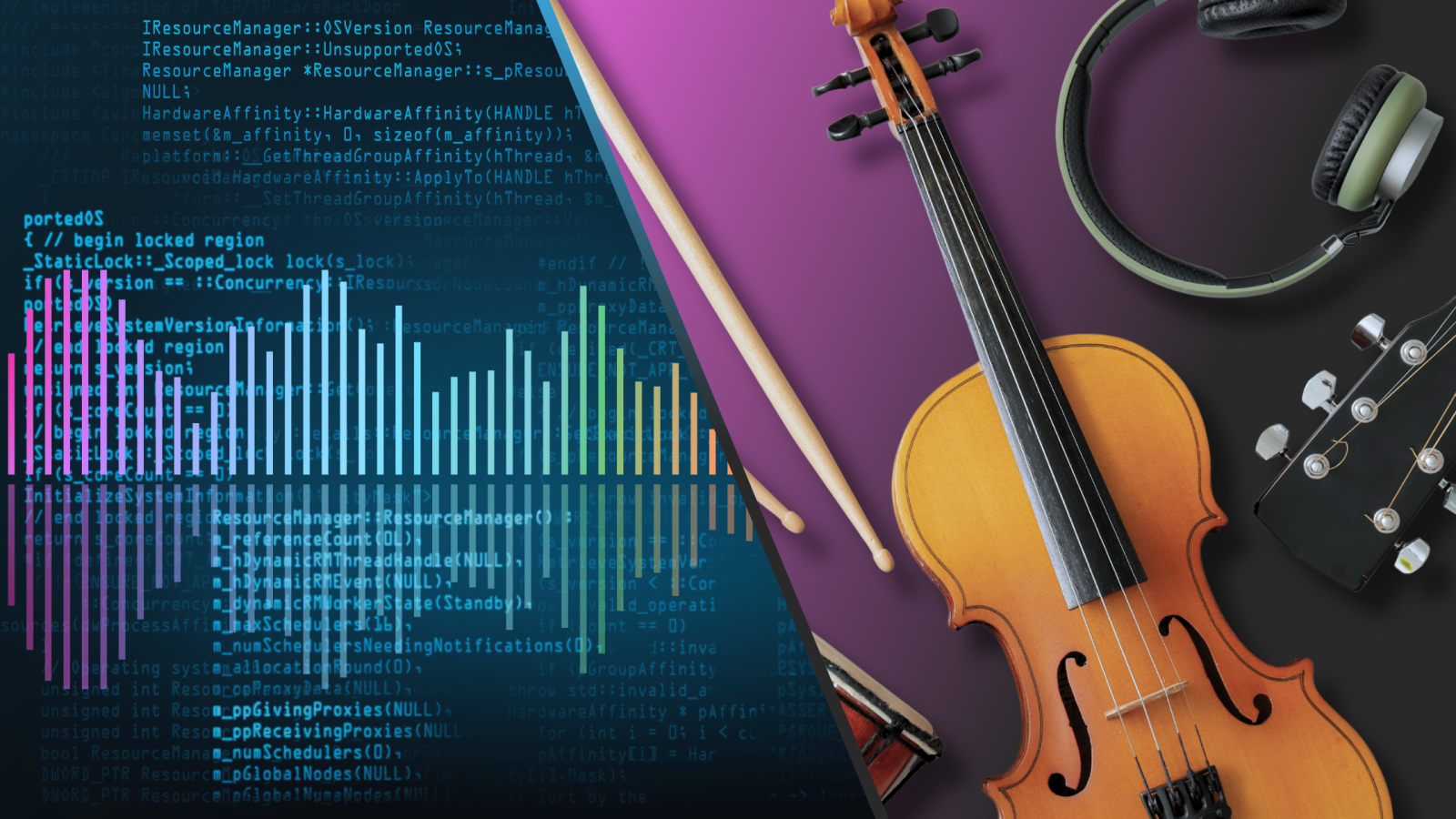The music industry remains divided on generative AI. Where will that leave us?

Photo: Image made with Canva Pro

The past year has seen music industry discourse around generative AI shift from disruption to strategy. Yet the strategies being employed vary widely, and there is no one “industry perspective” on how to approach it. While some larger companies are simultaneously embracing Gen AI and calling for established guardrails, smaller labels and independent artists are fighting Gen AI companies’ entry into the music industry. Gen AI seems to be establishing a foothold, but a lack of music industry consensus on how the technology should be used and regulated is highlighting longstanding cracks in the music industry’s foundation – and time is running out to mend them.
There is no clear divide in opinions, nor is there a clear solution
The most notable differences in AI strategies are between the major labels and independents. While the majors are working to find solutions that allow for responsible Gen AI use and drive new licensing revenue, many independent artists and smaller labels are firmly against any use of Gen AI in music. However, there are divides even within these factions. Larger independent companies and label representatives are taking a similar route to the major labels – Kobalt and Merlin have signed a deal with Gen AI music platform Eleven Music (per Music Business Worldwide), while Merlin and Believe have joined a larger partnership with Spotify to develop “artist-first AI music products”. On the other hand, Complete Music Update details how a group of independent artists recently filed class-actionlawsuits against Suno and Udio for copyright infringement. However, artists themselves also have differing opinions. According to MIDiA’s 2025 music creator survey, 12% of music creators have used AI co-pilots in music production and 8% use AI music app Suno regularly, while 45% of music creators have not used any AI music apps in the past twelve months.
Among the major labels, strategies for dealing with companies like Suno and Udio are in transition. Last year, the three majors sued Suno and Udio for copyright infringement. However, they may now be pushing for a settlement by amending their suit to claim that Suno illegally downloaded the tracks used to train their AI, following a precedent set in the ruling of the case between authors and AI company Anthropic (via Complete Music Update). In theory, court decisions set the strongest precedent for how to regulate Gen AI in music. However, legislation faces a number of challenges in practice, from lengthy processes – the major labels filed their lawsuits a year ago – to regulations differing by country. In the short term, financial settlements and direct licensing deals with Gen AI companies may lead to better outcomes for record labels – but in the long term, the fundamental dilemmas AI poses to copyright and fair use will remain unsolved.
Featured Report
Splice x MIDiA Sounds of 2026 House on the rise
We zoom in on the trends and microtrends driven by the music industry’s biggest fans and most influential tastemakers: creators. Turn page after page of trends unfolding in real-time and see how Splice’s dataset is the barometer for the state of music today.
Find out more…AI uploads on DSPs pose another problem
AI-generated music poses new questions for more than just rightsholders. DSPs and distributors are also divided in how they respond to a flood of AI-generated content on their platforms, and where responsibility lies for identifying it in the first place. A recent article from Water & Music outlined the differing approaches thus far. Deezer has taken the most aggressive stance, using proprietary AI detection tools and removing any tracks found to be fully AI-generated from algorithmic and editorial playlists. Spotify, on the other hand, has employed a voluntary disclosure strategy in which rightsholders indicate whether AI has been used in the creation of a track. Both strategies have their own pros and cons – Spotify’s solution allows for more nuance regarding how AI is used in music creation but essentially relies on an “honour code” system, while Deezer’s route takes decisive action but risks tracks being incorrectly labelled by the system. There is no perfect solution for Gen AI detection on DSPs – while both platform strategies are helpful, they struggle to fight against the growing “AI slop” volume problem that platforms are facing.
Generative AI is amplifying longstanding industry divisions
Ultimately, these divisions are rooted in misaligned incentives among industry players. While larger rightsholders are aiming to control and responsibly monetise Gen AI, smaller independent labels and artists face a more existential threat from the technology – and are often left out of decision-making altogether. While a growing number of AI negotiations are being lauded as “artist-centric”, it is still unclear how these deals will actually affect the artists they aim to protect (including how any new revenue from licensing deals would trickle down to them). Of course, while the technology is relatively new, many of the problems it is creating are not. Contention around issues like rights management, ownership, and revenue distribution are as old as the music business, and Gen AI is only serving to exacerbate them.
The lack of a united front from the music industry makes it ever harder to design new agreements and standards for Gen AI. If Gen AI strategy can solve – or at least chip away at – the industry’s longstanding problems, we will likely begin to see a more united front. However, if AI does not fix these foundational problems, and continues to only exacerbate them, the music industry will only grow more divided.

There is a comment on this post, add your opinion.